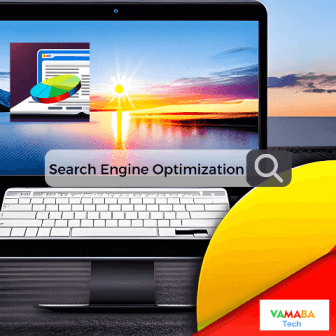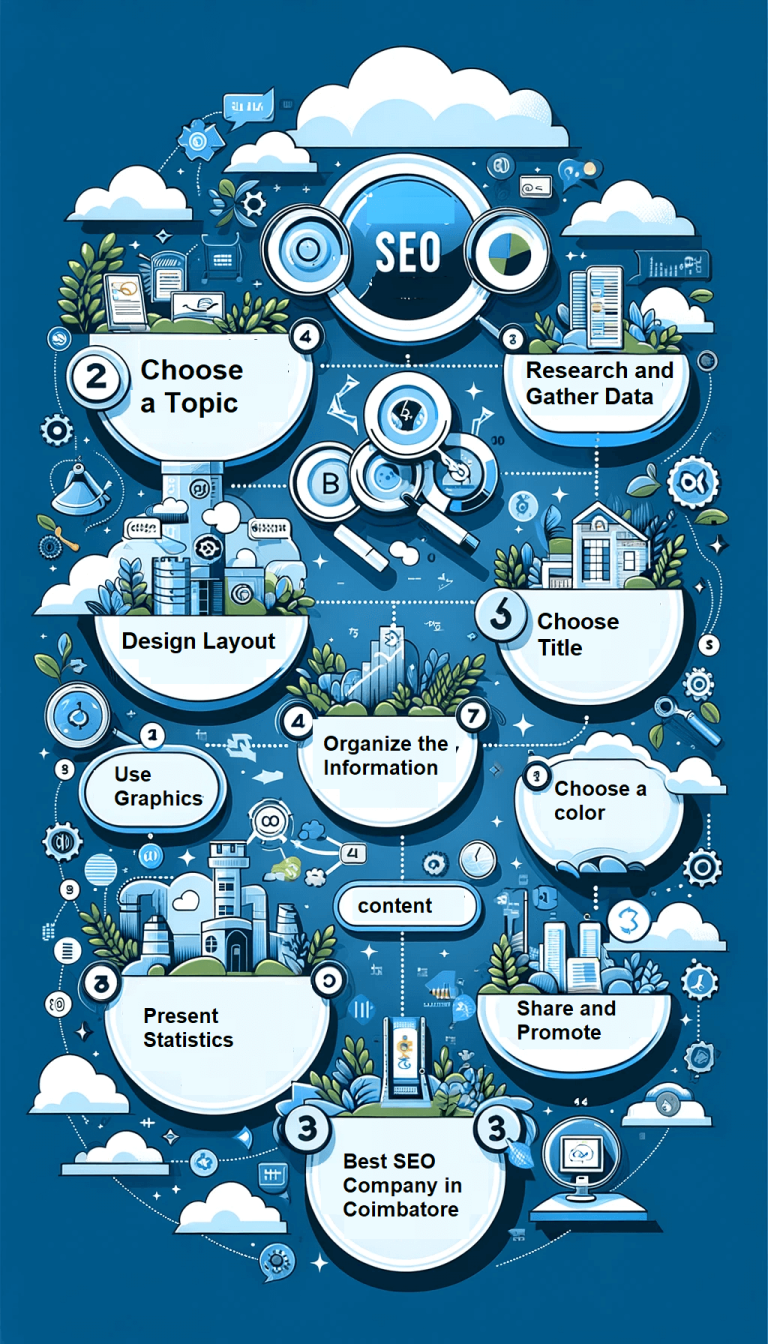Search Engine Optimization
Introduction to Search Engine Optimization – SEO
The practice of improving the visibility and ranking of a website or web page in search engine results pages (SERPs) is referred to as Search Engine Optimization or SEO. This involves optimizing various aspects of the website or web page to ensure it ranks higher in search engine results and attracts more traffic.The primary search engines include Google, Bing, and Yahoo, and each uses a complex algorithm to determine a website’s ranking. Understanding these algorithms is crucial to implementing effective SEO strategies.
Understanding search engines
The process of enhancing the visibility and ranking of a website or web page on search engine results pages (SERPs) for particular keywords and phrases is known as Search Engine Optimization (SEO). SEO is a crucial part of digital marketing, as it helps businesses generate organic search traffic, increase brand awareness, and drive conversions.
To understand search engines, it’s important to understand the algorithms they use to rank websites. Google, for example, uses a complex algorithm that takes into account hundreds of factors when determining a website’s ranking. Some of these factors include the website’s content, backlinks, user experience, site speed, mobile optimization, and more.

Keyword research and analysis
One of the first steps in any SEO campaign is conducting thorough keyword research and analysis. This involves identifying the keywords and phrases that users are searching for related to your business, and optimizing your website and content around those keywords. Keyword research tools such as Google Keyword Planner, SEMrush, and Ahrefs can help you find relevant keywords with high search volume and low competition.
On-page optimization techniques
On-page optimization techniques are strategies that you can implement on your website to improve its visibility and ranking in search results. Some on-page optimization techniques include optimizing your website’s title tags, meta descriptions, header tags, content, images, and internal linking structure.Page speed and user experience are also important factors in on-page optimization.
Off-page optimization techniques
Off-page optimization techniques refer to strategies that are implemented outside of your website to improve its ranking and visibility, such as link building.Building high-quality backlinks from authoritative websites can help to increase your website’s authority and improve its ranking in search results. Citation flow, trust flow, and domain authority are important factors in off-page optimization.
Link building strategies
Link building involves acquiring backlinks from other websites to your own. There are certain strategies that can enhance your website’s authority and boost its position in search results.There are several link building strategies, including guest blogging, broken link building, and social media promotion. Anchor text and canonicalization are important factors in link building.
Content marketing for SEO
Content marketing for SEO is the process of creating and publishing high-quality, relevant, and engaging content that is optimized for search engines. This includes blog, articles, videos,infographics, , and more. Content marketing helps to attract and retain a clearly defined audience, which can ultimately lead to increased traffic and conversions for your website.Metadata, schema, and robots.txt are important factors in content marketing.
Local SEO tactics
Local SEO tactics are used to optimize a website or web page for local search results. This can include optimizing your website’s Google My Business listing, building local citations, and optimizing your website’s content and structure for local keywords.This can include optimizing your website’s Google My Business listing, building local citations, and optimizing your website’s content and structure for local keywords. User experience and mobile optimization are important factors in local SEO.
National and international SEO strategies
National and international SEO strategies are used to optimize a website or web page for broader search results beyond local search. This can include optimizing your website’s content for national or international keywords, building high-quality backlinks from authoritative websites, and optimizing your website’s structure and content for multilingual audiences.Voice search optimization is an important factor in national and international SEO.
Technical SEO fundamentals
Technical SEO fundamentals involve optimizing your website’s structure and code to improve its visibility and ranking in search results. This can include optimizing your website’s robots.txt file, XML sitemap, canonical tags, and more.Crawling, indexing, and ranking are important factors in technical SEO.
There are three main types of SEO: white hat SEO, black hat SEO, and grey hat SEO.
White hat SEO refers to ethical and sustainable SEO techniques that follow search engine guidelines. Black hat SEO refers to unethical and manipulative SEO techniques that violate search engine guidelines. Grey hat SEO refers to techniques that fall somewhere in between white hat and black hat SEO.
SEO tools and software
SEO tools and software can help you to monitor and improve your website’s ranking and visibility in search results. Some popular SEO tools and software include Google Analytics, Google Search Console, Yoast SEO, Moz Pro, SEMrush, Ahrefs, and more.
SEO trends and predictions
SEO trends and predictions are constantly evolving, as search engines update their algorithms and user behavior changes. Some current SEO trends include the importance of quality content, the rise of voice search, the need for mobile optimization, and the increasing importance of local SEO.
Search Engines and SEO: Understanding the Basics
Search engines have been an integral part of the internet since the early days. Today, there are many search engines available, but Google, Bing, and Yahoo are the most popular ones. These search engines use complex algorithms to crawl websites, index their content, and rank them based on various factors. In this article, we’ll explore some of the key concepts related to search engines and Search Engine Optimization (SEO).
Crawling, Indexing, and Ranking
When a search engine crawls a website, it scans its pages and follows links to other pages on the site and other sites. The search engine then indexes the content it finds, which means it creates a database of all the pages and their content. Finally, the search engine ranks the pages based on various factors, including relevance, authority, and user experience.
Keywords and Backlinks
One of the key factors that search engines use to determine a page’s relevance is the presence of keywords. Backlinks, or links from other sites to a page, are another important factor. Backlinks can help establish a page’s authority and credibility.
Page Speed and Content
Search engines also consider page speed when ranking pages. Pages that load quickly are more likely to rank higher than pages that load slowly. Content is also important, as search engines favor pages with high-quality, relevant content.
Metadata and Schema
Metadata is information about a page that search engines use to understand its content. Metadata includes the page title, description, and keywords. Schema is a type of metadata that provides more detailed information about the content of a page, such as its author, date published, and other attributes.
Robots.txt and Sitemap
A robots.txt file is a file that tells search engines which pages on a site to crawl and which ones to ignore. A sitemap is a file that provides a list of all the pages on a site that should be indexed.
Canonicalization and Anchor Text
Canonicalization is the process of selecting the preferred URL for a page when there are multiple versions of the same page. Anchor text is the text that is used to create a hyperlink. Both canonicalization and anchor text can affect a page’s ranking.
Domain Authority, Page Authority, Trust Flow, and Citation Flow
Domain authority is a measure of a website’s overall authority and credibility. Page authority is a measure of a specific page’s authority and credibility. Trust flow and citation flow are measures of the quality and quantity of links to a page.
User Experience, Mobile Optimization, and Voice Search
User experience is a key factor in SEO, as search engines favor pages that are easy to navigate and use. Mobile optimization is also important, as more and more people are using mobile devices to access the internet. Finally, voice search is becoming increasingly popular, and search engines are adapting to this trend by favoring pages that are optimized for voice search.
Understanding the basics of search engines and SEO is essential for anyone who wants to succeed online. By optimizing your website for search engines, you can increase your visibility and attract more visitors to your site. Remember to focus on factors like keywords, backlinks, page speed, content, metadata, and user experience, and you’ll be well on your way to success.
SEO Optimization: Techniques for Improving Your Search Engine Rankings
SEO, short for search engine optimization, is the approach of refining a website to enhance its exposure and position in the pages of search engine results (SERPs). There are many different techniques and strategies that can be used to optimize a website for search engines, including optimization for search engines, website optimization, organic optimization, and search engine marketing optimization.
Optimization Techniques
There are many techniques that can be used to optimize a website for search engines. One of the most important is the use of LSI keywords, which are related keywords that help search engines understand the context of a page. Other important techniques include optimizing for search engine algorithms, optimizing for Google ranking factors, creating quality content, optimizing keyword density, optimizing anchor text, building local citations, leveraging social media signals, optimizing for mobile-first indexing, and implementing HTTPS and SSL.
LSI Keywords
LSI keywords are a type of optimization technique that involves using related keywords to help search engines understand the context of a page. This technique can help improve a page’s relevance and ranking in search results.
Search Engine Algorithms
Search engine algorithms are the complex formulas that search engines use to determine the relevance and ranking of pages in search results. Optimizing for these algorithms is essential for improving a website’s visibility and ranking in SERPs.
Google Ranking Factors
Google ranking factors are the specific factors that Google uses to determine the relevance and ranking of pages in search results. Some of the most important ranking factors include quality content, keyword density, anchor text optimization, local citation building, social media signals, mobile-first indexing, HTTPS and SSL, user engagement metrics, page authority, and link equity.
Quality Content
In the optimization of SEO, creating high-quality content is among the most crucial factors. Search engines favor pages that provide high-quality, relevant content that meets the needs of users.
Keyword Density
Keyword density is the percentage of times a keyword appears on a page compared to the total number of words on the page. Optimizing keyword density can help improve a page’s relevance and ranking in search results.
Anchor Text Optimization
Anchor text optimization involves optimizing the text that is used to create links to a page. Optimizing anchor text can help improve a page’s relevance and ranking in search results.
Local Citation Building
Local citation building involves building citations (mentions of a business’s name, address, and phone number) on local directories and other websites. This technique can help improve a website’s local relevance and ranking in search results.
Social Media Signals
Social media signals are the signals that search engines use to determine a page’s social relevance and popularity. Optimizing for social media signals can help improve a page’s ranking in search results.
Mobile-First Indexing
Mobile-first indexing is a search engine indexing strategy that prioritizes mobile-friendly content in search results. Optimizing for mobile-first indexing is essential for improving a website’s ranking in search results.
HTTPS and SSL
HTTPS and SSL are security protocols that encrypt data transmitted between a website and its users. Implementing HTTPS and SSL can help improve a website’s ranking in search results.
User Engagement Metrics
User engagement metrics are the metrics that search engines use to determine how engaged users are with a page. Optimizing for user engagement metrics can help improve a page’s ranking in search results.
Page Authority and Link Equity
Page authority and link equity are measures of a page’s authority and credibility. Optimizing for page authority and link equity can help improve a page’s ranking in search results.
User Intent Optimization
User intent optimization involves optimizing a website’s content to meet the needs and expectations of users. Optimizing for user intent can help improve a website’s ranking in search results and increase user engagement.
SEO optimization is a complex and ever-evolving field, but by using the right techniques and strategies, you can improve your website’s visibility and ranking in search engine results pages. Remember to focus on optimizing for search engine algorithms, creating quality content, optimizing for Google ranking factors, leveraging social media signals, and optimizing for user engagement metrics, and you’ll be well on your way to success.
Top Tools and Techniques for Digital Marketing
Digital marketing has become an essential part of any business’s success, and there are plenty of tools and techniques available to help you achieve your goals. Let’s take a look at some of the most popular digital marketing tools and techniques, including Google Analytics, Google Search Console, Keyword Planner, Yoast SEO, Moz Pro, SEMrush, Ahrefs, Majestic SEO, Alexa, Site audit, Canonical tags, Meta tags, Header tags, Alt tags, XML sitemap, HTML sitemap, Robots.txt file, Google My Business, Bing Places, Schema markup, Page speed optimization, Mobile optimization, Voice search optimization, Conversion rate optimization (CRO), User experience (UX) design, Content creation and optimization, Social media marketing, Email marketing, Pay-per-click (PPC) advertising, Display advertising, Retargeting, Affiliate marketing, Influencer marketing, Online reputation management, Crisis management, and Digital PR.
Google Analytics and Google Search Console
Google Analytics and Google Search Console are essential tools for any business that wants to track and analyze website traffic. These tools provide valuable insights into how users interact with your website and can help you make data-driven decisions about your digital marketing strategies.
Keyword Planner
Keyword Planner is a tool that helps you research and analyze keywords for your SEO and PPC campaigns. This tool provides valuable insights into keyword volume, competition, and trends, which can help you choose the most effective keywords for your campaigns.
Yoast SEO, Moz Pro, SEMrush, Ahrefs, and Majestic SEO
Yoast SEO, Moz Pro, SEMrush, Ahrefs, and Majestic SEO are all popular SEO tools that can help you optimize your website for search engines. These tools provide valuable insights into your website’s SEO performance and can help you identify and fix issues that may be hindering your ranking.
Alexa
Alexa is a tool that provides insights into website traffic and audience demographics. This tool can help you identify your target audience and optimize your digital marketing campaigns accordingly.
Site Audit, Canonical tags, Meta tags, Header tags, Alt tags, XML Sitemap, HTML Sitemap, and Robots.txt file
Site audit, Canonical tags, Meta tags, Header tags, Alt tags, XML Sitemap, HTML Sitemap, and Robots.txt file are all essential components of website optimization. These tools can help you ensure that your website is properly structured and optimized for search engines.
Crucial Tools Google My Business and Bing Places
For local businesses, utilizing Google My Business and Bing Places is crucial.These tools allow you to manage your business’s online presence and ensure that your business information is accurate and up-to-date.
Schema Markup
Schema markup is a type of HTML code that provides search engines with additional information about your website’s content. This improves website’s visibility and ranking in search results.
Page Speed Optimization, Mobile Optimization, and Voice Search Optimization
Page speed optimization, mobile optimization, and voice search optimization are all essential components of website optimization. These techniques can help you ensure that your website is fast, mobile-friendly, and optimized for voice search.
Conversion Rate Optimization (CRO) Definition
The process of enhancing your website to boost conversions is called conversion rate optimization (CRO).This technique involves analyzing user behavior and making adjustments to your website to improve user experience and increase conversions.
User Experience (UX) Design
User experience (UX) design is the process of designing a website that is easy to use and provides a positive user experience. This technique can help you improve user engagement and increase conversions.
Content Creation and Optimization
Content creation and optimization are essential components of digital marketing. These techniques involve creating high-quality, engaging content that is optimized for search engines and user experience.
Social Media Marketing, Email Marketing, Pay-Per-Click (PPC) Advertising, Display Advertising, Retargeting, Affiliate Marketing, and Influencer Marketing
Social media marketing, email marketing, pay-per-click (PPC) advertising, display advertising, retargeting, affiliate marketing, and influencer marketing are all popular digital marketing techniques that can help you reach your target audience and increase conversions.
Online Reputation Management, Crisis Management, and Digital PR
Online reputation management, crisis management, and digital PR are all essential components of maintaining a positive online reputation. These techniques involve monitoring and managing your online presence and responding to negative feedback or crises in a timely and effective manner.
Conclusion
SEO is a vital component of digital marketing that can help businesses generate organic search traffic, increase brand awareness, and drive conversions. By understanding search engines, conducting thorough keyword research, implementing on-page and off-page optimization techniques, building high-quality backlinks, and creating engaging and relevant content, businesses can improve their website’s visibility and ranking in search results. With the right SEO tools and software, businesses can monitor and improve their website’s ranking and visibility, while staying up-to-date with the latest SEO trends and predictions.
SEO is a critical component of digital marketing that can help businesses increase their online visibility, attract more traffic, and generate more leads and sales. By implementing effective SEO strategies, including keyword research and analysis, on-page and off-page optimization techniques, link building, content marketing, and local and national SEO tactics, businesses can improve their website’s visibility and ranking in search results. Technical SEO fundamentals, user experience, and mobile optimization are also key factors in SEO success. With the right SEO tools and software, businesses can monitor and improve their website’s ranking and visibility, while staying up-to-date with the latest SEO trends and predictions.
Digital marketing is a complex and ever-evolving field, but by using the right tools and techniques, you can achieve your goals and reach your target audience. Remember to focus on optimizing your website for search engines and user experience, creating high-quality content, and leveraging digital marketing techniques like social media marketing, email marketing, and pay-per-click advertising to reach your target audience and increase conversions.






